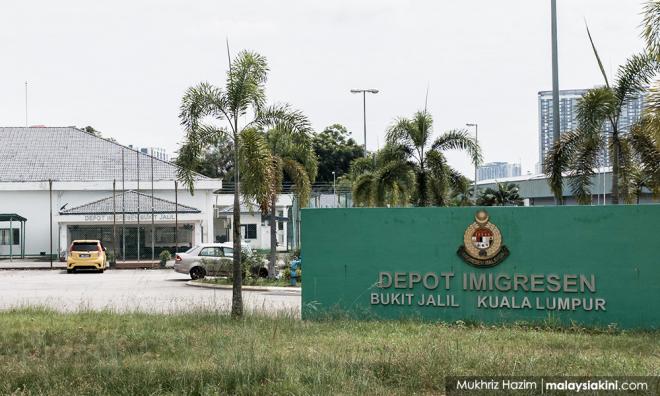
Anguish and sadness have pervaded the Zeeawdeen family household in Chennai, India, since May 8, when the head of the household, Zeeawdeen Kadar Masdar, was detained by the immigration in Kuala Lumpur.
On June 14, their world shattered.
That day, they learnt from the news that a 67-year-old Indian citizen died in the Bukit Jalil Immigration Depot. The man was not named, but the description fitted Zeeawdeen. A day later, the Indian High Commission in Kuala Lumpur confirmed it was him.
His family said Zeeawdeen was a tourist, stranded when flights to India were cancelled during the global lockdown. Visa documents showed he entered the country on March 17, a day before the movement control order was imposed.
He was due to return to Chennai on March 20, but instead, he languished in detention for more than a month before he was found unconscious in his cell.
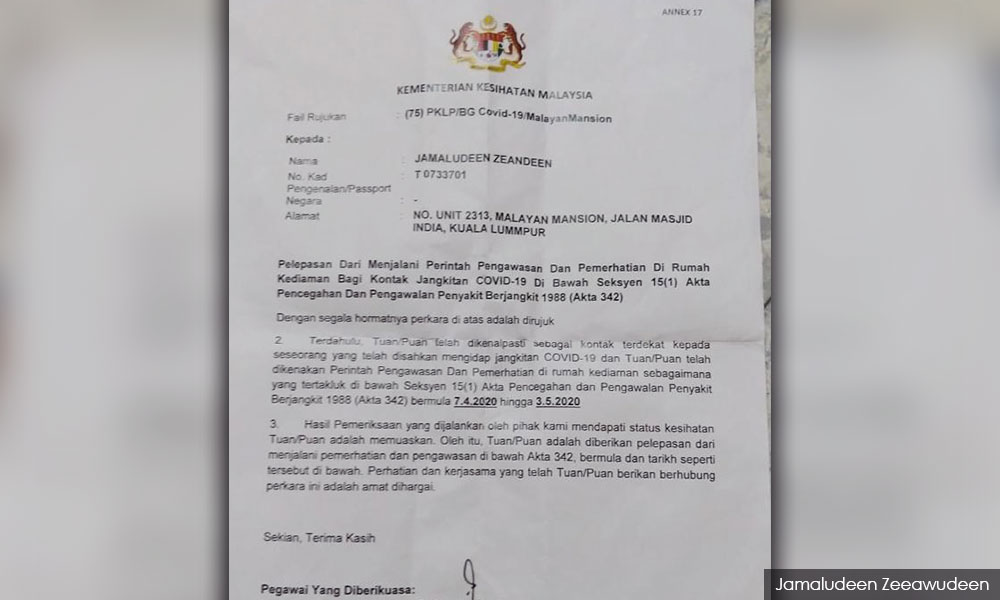
A test after Zeeawdeen died showed he was Covid-19 positive, but he was not infected before he was detained, a Health Ministry document showed. A representative of the family is still waiting to collect the remains.
“My family is in extreme sorrow. My mother had a heart condition and she is now in hospital after hearing about my father.
“I want to lodge a complaint to the Human Rights Commission because what happened to him is not fair. I want to know why the police and immigration acted with no sympathy, especially when it was Ramadan,” his son, Jamaludeen said.
Immigration: That's not the man who died
But when contacted, Immigration Department director-general Khairul Dzaimee Daud said Zeeawdeen is not the man who died in immigration custody on June 12.
“Those in detention are undocumented or overstayed. They entered before January 2020. This is not the man who died,” he said when shown Zeeawdeen’s e-Visa document, showing he entered the country on March 17.
This directly contradicts what the Indian High Commission said. It informed the family on June 15 that Zeeawdeen was the man whose death was announced by the Health Ministry the day before.
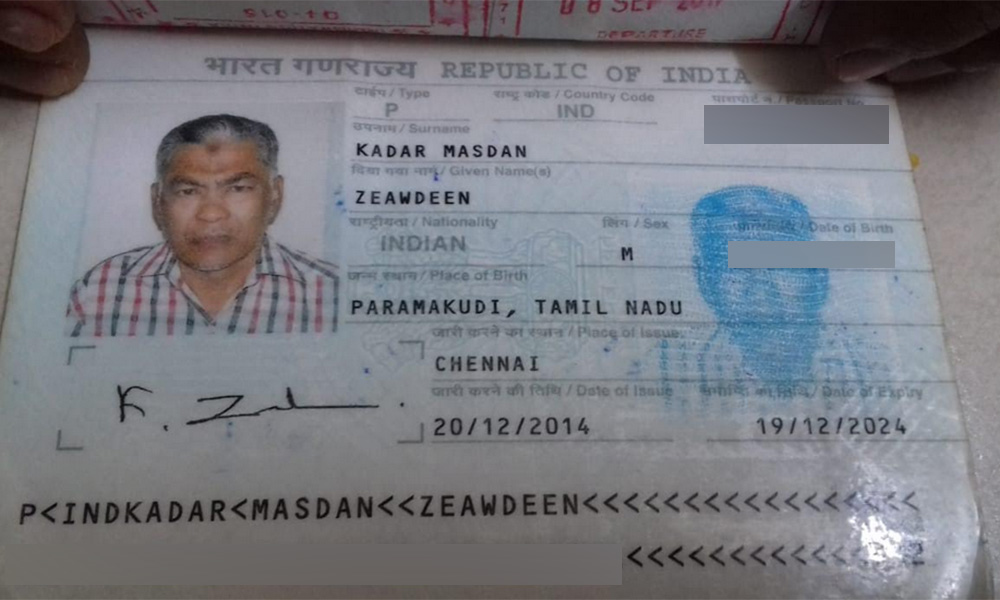
Zeeawdeen’s family has appointed a family friend to collect the remains and arrange for a funeral, but the man has not been able to gain access to the body or Zeeawdeen’s personal possessions.
This includes the passport, which will determine if Zeeawdeen did indeed die in detention on June 12.
The friend spent three days being passed around from hospital to hospital.
He was finally told that the remains are at Hospital Kuala Lumpur (HKL). On Wednesday, he waited the entire day at the HKL, to no avail.
Health Ministry director-general Dr Noor Hisham Abdullah said the post-mortem report has not been completed.
Stranded tourists
Zeeawdeen, Jamaludeen and Jamaludeen’s father-in-law travelled to Kuala Lumpur on a social visit the day Malaysia went under the movement control order (MCO).
When flights to India were cancelled, they decided to wait it out at their relative’s home in Malaya Mansion in the Masjid India area of Kuala Lumpur.
Malaya Mansion was an active Covid-19 cluster. In April, it went under the enhanced MCO and all residents had to undergo mandatory Covid-19 screening.

According to Health Ministry letters sighted by Malaysiakini, Zeeawdeen and Jamaludeen were both declared Covid-19 negative on May 4. But on May 8, Zeeawdeen was taken away.
This was the last time the family had contact with him. On June 14, the Health Ministry announced the death of a 67-year-old Indian citizen at the Bukit Jalil Immigration Depot on June 12.
He collapsed and was rushed to the hospital, but could not be saved. A test before the post-mortem was done revealed he was Covid-19 positive. He also suffered from hypertension, heart disease, diabetes and kidney disease.
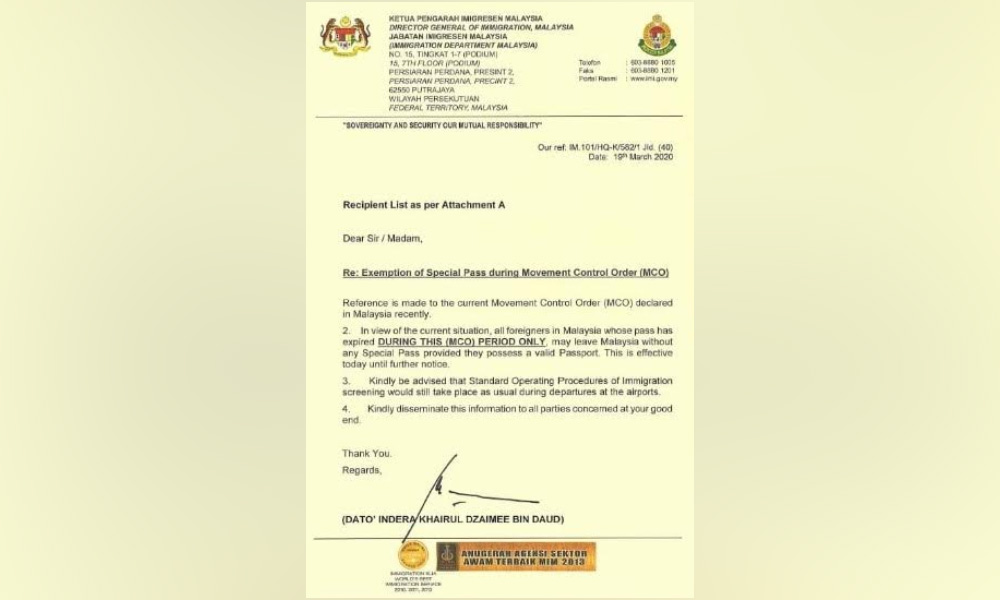
On June 14, Jamaludeen was at home in Chennai. He had stayed in Kuala Lumpur until June 12, refusing to return even when flights were available because he did not want to leave his father in a detention centre.
During the period of waiting, he took his father’s medications to the Bukit Jalil depot, worried that the elderly man would not be able to withstand the detention conditions. But he was not allowed to visit his father.
He had no choice but to go home on June 12 because he ran out of money.
“They (the immigration officers) told me to go home first, but I told them how can I go home without my father? They told me they will send him home later,” Jamaludeen said.
Dozens of other tourists in detention
Dead or alive, Zeeawdeen’s story of detention matches that of at least six others in the Bukit Jalil Immigration Depot. Malaysiakini interviewed their family members and friends separately.
Documents, including immigration checkpoint stamps and e-Visa printouts showed they were tourists who entered Malaysia days before the MCO and were stranded. Most were detained by immigration officers during raids in Masjid India.
Delhi-based NGO Pravasi Legal Cell, in a complaint to the High Commission of India, estimates that at least 60 Indian citizen tourists are now languishing in the Bukit Jalil depot.
The Indian High Commission and the Malaysian home minister’s office did not respond to Malaysiakini’s request for information and comment.
Pravasi Legal Cell also lodged a complaint with the Human Rights Commission (Suhakam) on three detainees. Suhakam told Malaysiakini it is following up with the Immigration Department and the High Commission.
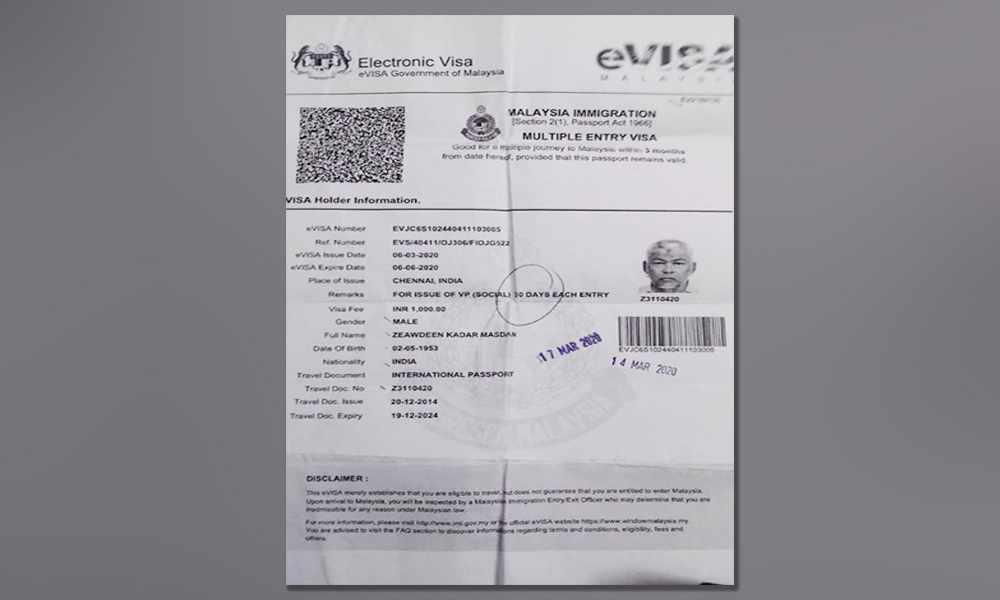
Despite documentary evidence showing otherwise, Immigration DG Khairul Dzaimee said all in immigration detainees are undocumented or they entered the country before January 2020.
Earlier, the National Security Council said no action would be taken against tourists overstaying their visas during the MCO period.
This is little assurance for Jamaludeen, who is fearful about returning to Malaysia.
“I will ensure my father’s funeral is arranged there, but I cannot enter Malaysia because, if I do, I will definitely be detained,” he said.
“I never thought the Malaysian government would do this to us.” - Mkini


No comments:
Post a Comment
Note: Only a member of this blog may post a comment.